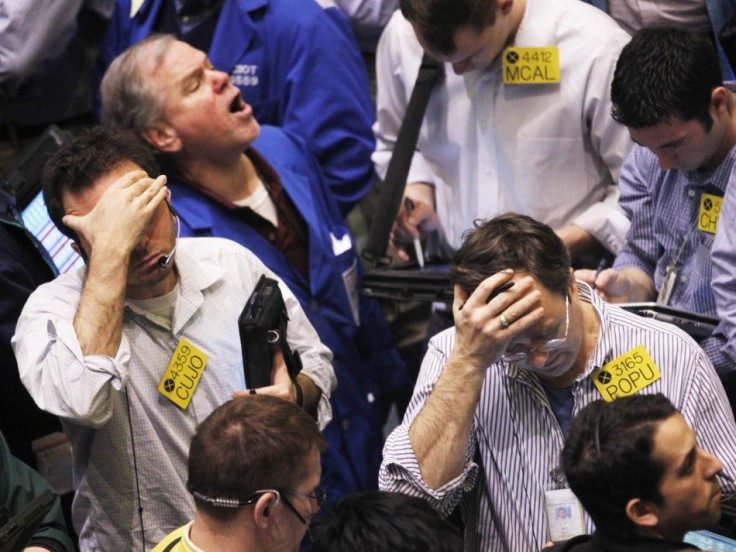Are the markets past the Middle East unrest?

Are the global markets past the Middle East unrest? The answer is probably yes.
On Friday February 25th, the market showed signs of returning confidence and fading fear.
Indeed, the Chicago Board Options Exchange Market Volatility Index (VIX) dropped, oil prices appear to have stabilized, and high-yielding currencies have generally rallied against low-yielding currencies.
The reality is that the global financial markets and economy can prosper in spite of conflicts in small developing countries. Conflicts in Rwanda and Kosovo didn't stop the economic boom of the 1990s. Even the Iran-Iraq War, from 1980 to 1988, didn't prevent the global economy from expanding from 1983 to 1988.
Conflicts in these developing countries only begin to affect the global economy if oil is involved. For example, in the 1970s, a large oil embargo from these developing countries significantly slowed the US economy.
However, in the 1980s, the US and global economy prospered despite the war between Iran and Iraq, two oil-producing countries -- which suggests that the disruption in oil supply must be on a much larger scale in order to have a serious negative impact on the global economy.
In the case of the 2011 Middle East uprising, oil is again the key issue.
Tunisia didn't matter too much in this regard. Neither did Egypt, except for perhaps the transit of oil tankers through the Suez Canal. So far, the Egyptian military has ensured the operation of the canal.
The global economy can even get along without the oil producing country of Libya, which is only the 12th largest oil exporter in the world, although some of its oil customers like France and Italy could temporarily suffer.
But the worry is that the uprising would spread to larger oil producers.
Saudi Arabia
It's the biggest oil exporter in the world. Any uprisings and disturbances there will send oil prices surging and likely cripple the fledgling global economic recovery. However, a massive revolt is unlikely in this country.
It's true that Saudi Arabia has an authoritarian regime. However, whether a country will revolt against its dictator in large depends on the economy, i.e. if people are well provided for, they won't be desperate enough to rebel.
In Saudi Arabia's case, its massive oil wealth has allowed King Abdullah to roll out a $37-billion benefits package to his citizens in response to incipient signs of discontent. After this generous gift, it's doubtful that enough people would sacrifice their lives to overthrow the king.
Iran
Iran is the fourth largest oil exporter in the world. If all of its oil production halted, the global supply will be seriously dented. Still, Russia, Saudi Arabia, and the United States could probably ramp up their oil production to make up for the lost Iranian oil.
The threat of revolution is greater in Iran than Saudi Arabia. President Mahmoud Ahmadinejad is certianly more reviled in his country than King Abdullah is in his; moreover, Iranians are much poorer than Saudis and Iran has a vibrant opposition movement (like Egypt).
Nigeria
Nigeria is a large oil producer. Its people are poor and many are not happy with the current government. However, Nigeria is a very fractured society composed of varying ethnic groups, which makes a unified revolt not likely. Moreover, there are little or no signs that such an uprising is brewing.
China
China is not an oil exporter, but an uprising in the country-- dubbed the world's 'growth engine' after the financial crisis -- would cripple the global economy because it’s a large global supplier of manufactured goods and becoming an increasingly more important source of demand for all kinds of goods.
However, a revolution there is not likely because the current regime has improved the living standards of the people for three decades. Moreover, the government is extremely effective at cracking down on opposition.
Conclusion
Aside from Iran, the threat of revolution is unlikely to materialize in strategic oil-producing countries. Even if they do, the revolution could be peaceful and oil production may not entirely cease. Moreover, any revolution is unlikely to occur in China.
The global economy, therefore, should be able to continue its recovery despite unrest in the Middle East. The markets, in turn, may soon return to its 'risk-on' mode.
Email Hao Li at hao.li@ibtimes.com
Click here to follow the IBTIMES Global Markets page on Facebook
Click here to read recent articles by Hao Li
© Copyright IBTimes 2024. All rights reserved.





















